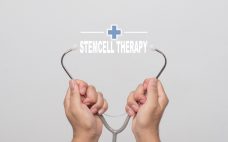The US FDA has published six draft guidance documents related to gene therapies. The inclusion of manufacturing guidelines will help modernize the commercialization process to keep pace with the growth technology, say industry groups. Over the past 12 months, the US food and Drug Administration (FDA) has approved three separate gene therapy products: Novartis‚Äô Kymriah (tisagenlecleucel), Gilead/Kite‚Äôs Yescarta (axicabtagene ciloleucel), and Spark Therapeutics‚Äô Luxturna (voretigene neparvovec). And with a growing number of gene therapies moving through the clinic ‚Äď there…

Therapeutic Class
Still Space for Multiple Neulasta Biosimilars, says Pfenex
Pfenex has deprioritized its pegfilgrastim biosimilar program but is reevaluating the market after Mylan‚Äôs recent success in the US. In June, the US Food and Drug Administration approved Mylan‚Äôs Fulphilia on its second attempt. While Fulphilia has become the first biosimilar of Amgen‚Äôs cancer drug Neulasta (pegfilgrastim), there are several other firms looking to tap the market, including Coherus and Novartis subsidiary Sandoz. Clinical-stage development and licensing biotech Pfenex too has a pegfilgrastim biosimilar in its pipeline, PF529, but announced…
Therapy First, Efficiency Second: Why We Should Stop Focusing on Manufacturing Costs
Drug substance manufacturing only contributes around 5% on average to the total cost of a biologic says GE Healthcare‚Äôs Guenter Jagschies. Payors, patients and governments are increasingly looking to industry to justify the high prices of prescription drugs. As new immuno-oncology treatments are being launched with increasingly higher price tags and often the cost of producing these complex biotherapeutics. ‚ÄúThis industry is not pricing based on cost, it is pricing based on perceived value,‚ÄĚ Guenter Jagschies, senior director of strategic…
Hyperstack Shortage Caused by Gene Therapy Surge
The adoption of viral vector technology in cell and gene therapy has led to six month waiting lists for multilayer culture vessels. Hyperstack vendor Corning says it will more than double its manufacturing capacity to deal with the demand. Despite being a registered brand owned by Corning Life Sciences, ‚Äėhyperstack‚Äô has become a common term to describe multilayer, scalable, and single-use culture flasks. They are used to produce viral vectors and gene therapies, and are in huge demand, according to…
FDA Seeks Injunctions in Fight Against $2.4bn Unapproved Stem Cell Market
Industry group International Society Cell and Gene Therapy (ISCT) has supported regulatory actions aimed at permanently closing two unapproved US stem cell clinics. The US Food and Drug Administration (FDA) is seeking a permanent injunction against Sunrise, Florida-based US Stem Cell Clinic LLC and Californian firm California Stem Cell Treatment Center Inc for marketing stem cell products without approval. The actions are the latest in a crackdown by the regulator on unproven cellular therapies (UCT) and complement a suite of…
Humira Biosimilars: Amgen Lawsuit ‚ÄėStake in the Ground‚Äô for Others
Amgen will challenge AbbVie‚Äôs bestseller Humira in the US from 2023, following a lawsuit settled last year. Other adalimumab developers are likely to receive the same deal, an IP lawyer says. In September 2017, Amgen and AbbVie reached a settlement resolving all pending litigation in relation to the former‚Äôs Amjevita, a biosimilar version of the latter‚Äôs top-selling monoclonal antibody Humira (adalimumab). Amjevita became the third biosimilar to approved by the US Food and Drug Administration (FDA) in September 2016, but…
Biogen Upping Stake in Biosimilars JV
Biogen has agreed to pay around US$700 million (‚ā¨602 million) to increase its stake in biosimilars joint venture Samsung Bioepis from 5.4% to 49.9%. Samsung Bioepis was formed in 2012 as a joint venture between Samsung BioLogics and Biogen to develop biosimilar drugs. Under terms of the deal, Biogen had the option to increase its single-digit involvement to 49.9% by mid-2018, something the firm announced it would be doing Thursday. ‚ÄúWe are very pleased with the progress made to date…
Industry Looks to ‚ÄėLucrative‚Äô Opportunities for Off-the-Shelf Cell Therapies
Allogeneic cell therapies have greater commercial potential than autologous products, an industry survey finds. Respondents also believe there are a lack of third-party capabilities to make these new therapies. When Novartis‚Äôs Kymriah (tisagenlecleucel) received the regulatory thumbs up in August 2017, US Food and Drug Administration (FDA) Commissioner Scott Gottlieb described regenerative medicines as being ‚Äúno longer the stuff of science fiction.‚ÄĚ The approval of Gilead/Kite‚Äôs Yescarta (axicabtagene ciloleucel) weeks later helped cement the safety and commercial potential of CAR-T…
J&J Repurposing US Site to Support CAR-T Manufacturing
Johnson & Johnson is renovating a facility in the US to make anti-cancer CAR-T candidate LCAR-B38M licensed from Legend Biotech last year. In December 2017, J&J subsidiary Janssen Biotech, Inc., entered into the chimeric antigen receptor (CAR) T-cell space through a US$350 million (‚ā¨304 million) collaboration and licensing deal with Chinese firm Legend Biotech. Legend‚Äôs oncology candidate, LCAR-B38M, targets the B-cell maturation antigen (BCMA) and is under review in China. At the Goldman Sachs Annual Global Healthcare Conference earlier this…
CAR-T Firm Autolus Raises $150m in IPO
Autolus Therapeutics has gone public and says it is looking to build its own T cell therapy manufacturing capabilities. Autolus launched its initial public offering (IPO) in May, and today the firm said it has raised approximately US$150 million ( ‚ā¨129 million) and has begun trading on the Nasdaq Global Select Market under the ticker symbol ‚ÄúAUTL.‚ÄĚ The London, UK-based firm is a gene therapy developer working on personalized Chimeric Antigen Receptor (CAR) T cell therapies for cancer using its…










